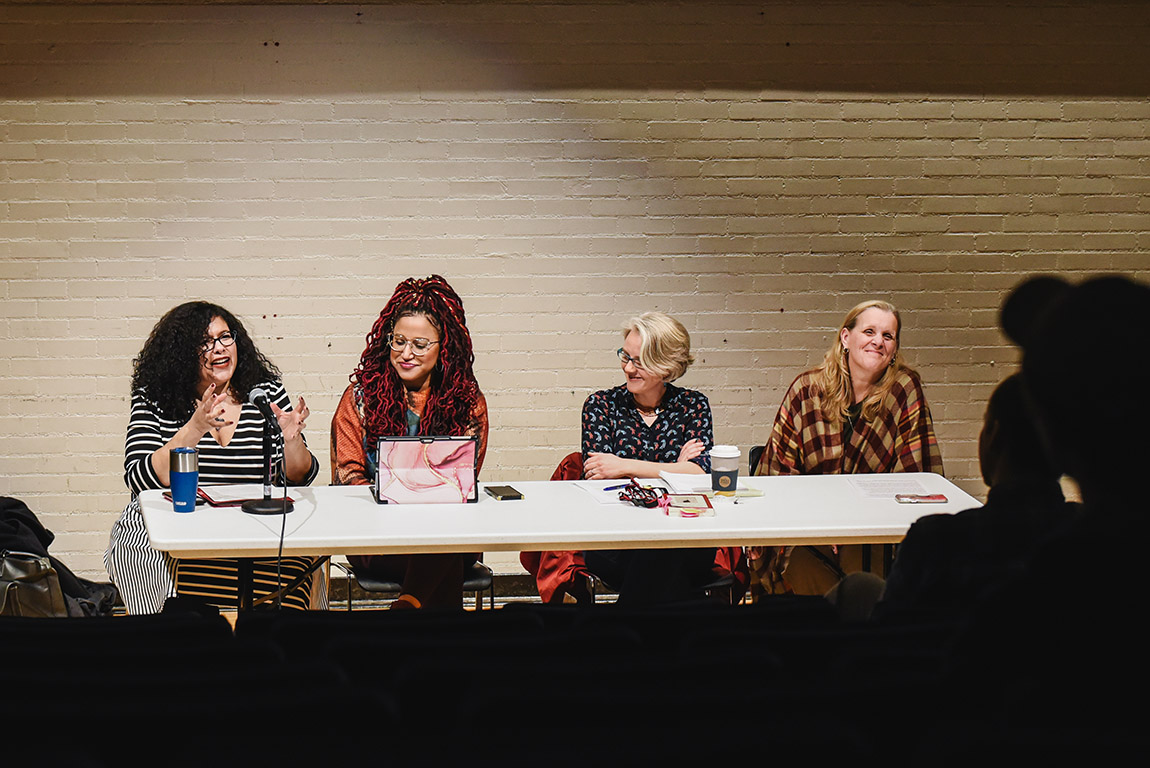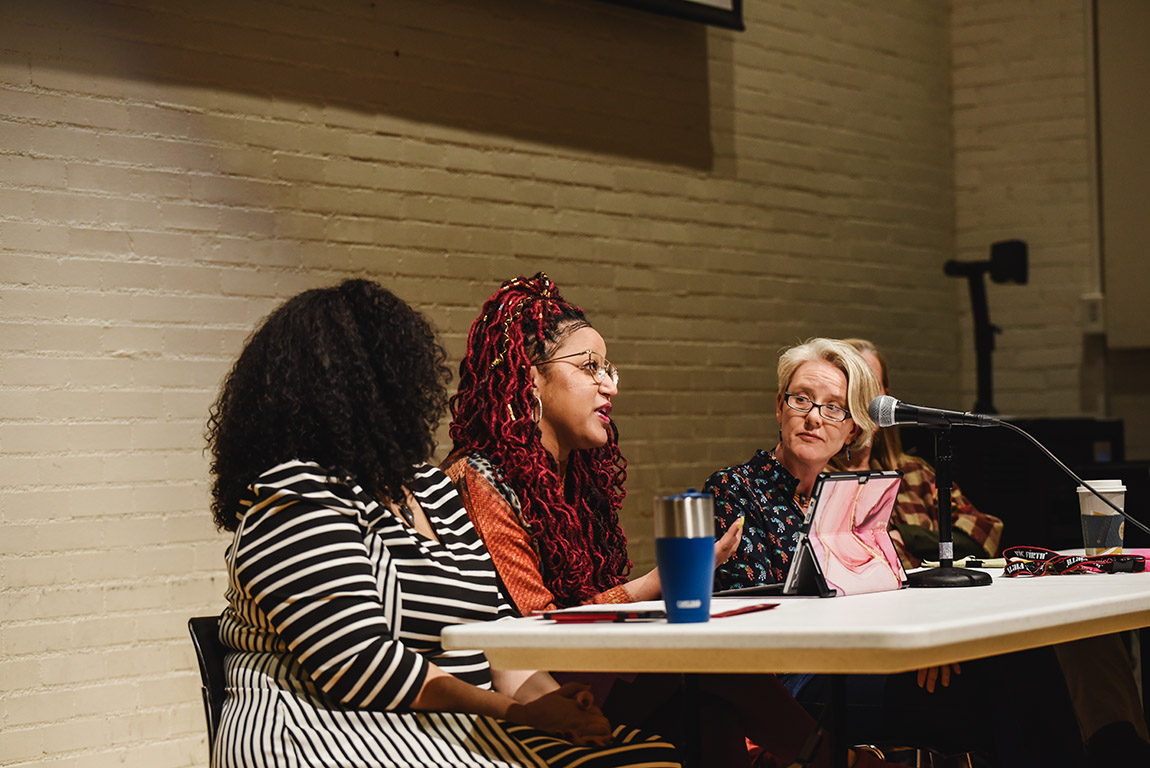Race in Classical Music
Muhlenberg faculty lead a panel asserting the importance of including Black art in higher education and the classical music canon.By: Katherine Dickey '22 Friday, February 14, 2020 02:37 PM
 The faculty panel on Race in Classical Music was the first event in the Celebration of African American Poets & Composers series. Photos by Kristi Morris, Littlewing Studios.
The faculty panel on Race in Classical Music was the first event in the Celebration of African American Poets & Composers series. Photos by Kristi Morris, Littlewing Studios.To kick off the Department of Music’s Celebration of African American Poets & Composers, part of the College’s Black History Month programming, faculty members from across campus held a panel discussion called Race in Classical Music on Friday, February 7. Organized and led by Patricia Budlong, lecturer of voice, the panel was filled out by Brooke Vick, associate provost for faculty and diversity initiatives, Emanuela Kucik, interim co-director of Africana studies and assistant professor of English, and Kassandra Hartford, assistant professor of music.
Each panelist gave a statement at the start of the event detailing their own connection to the issue of the erasure of Black artists in classical music. Vick, whose expertise is in the psychology of bias, detailed how the exclusion of the art of marginalized groups has led to a prevailing sense that African-American artists were not contributing to the larger culture of classical music, which has robbed many African-American people of the ability to have pride in art made by someone to whom they feel they can relate.
Budlong detailed how the history of classical vocal instruction has led to the exclusion of African-American voices—most classical vocal pedagogy is centered on 18th- and 19th-century Italian operatic techniques—and how that has led to a largely white and male canon.
Hartford focused on educating the audience on the variety of the African-American composers that have been excluded from the canon. She tackled some of the myths that she has encountered in her study of African-American composers, namely that there aren’t that many or that their pieces sound identifiably different from white-authored pieces, by giving the audience an extensive list of composers and resources of where to access them, as well as playing a piece by African-American composer Robert Owens to demonstrate its lush beauty.

Kucik (above, second from left), who studies connections between race, genocide and literature, emphasized that the erasure of Black art has allowed people to think that Black people are less than human, which has shaped the course of American history. Kucik shared how slaves gaining literacy allowed them to first fight this narrative, and that art by African-Americans is inherently political in asserting Black humanity, whether or not it explicitly addresses Blackness.
The four then embraced a point brought up by Kucik about the necessity for a duality of study in arts from which contributions by African-American artists have been erased. They conceded the importance of both working to include art by minority groups in the canon considered by mainstream literature and music courses as well as emphasizing specific study of African-American art and the societal factors that bind that art by marginalized groups together.
The panel was the first in the music department's Celebration of African American Poets & Composers series, which is designed to bring more thoughtfulness and inclusivity to Muhlenberg’s curriculum. This event was followed by a seminar in music by Black composers for voice instructors as well as student research presentations on the importance of the inclusion of African-American composers in the musical canon.
Valentine’s Day will see the culmination of this series with a faculty concert centered around the work of Black composers in Empie Theatre in the Baker Center for the Arts at 7:30 p.m. on Feb. 14. That event is free and open to the public.
About Muhlenberg College
Founded in 1848, Muhlenberg is a highly selective, private liberal arts college offering baccalaureate and graduate programs. With an enrollment of nearly 2,000 students, Muhlenberg College is dedicated to shaping creative, compassionate, collaborative leaders through rigorous academic programs in the arts, humanities, natural sciences and social sciences; selected preprofessional programs, including accounting, business, education and public health; and progressive workforce-focused post-baccalaureate certificates and master’s degrees. Located in Allentown, Pennsylvania, approximately 90 miles west of New York City, Muhlenberg is a member of the Centennial Conference, competing in 23 varsity sports. Muhlenberg is affiliated with the Evangelical Lutheran Church in America.
